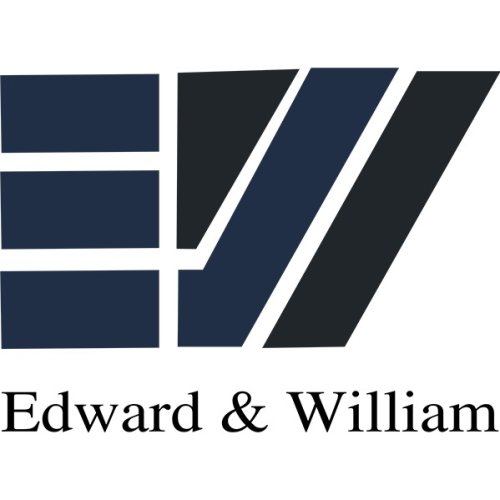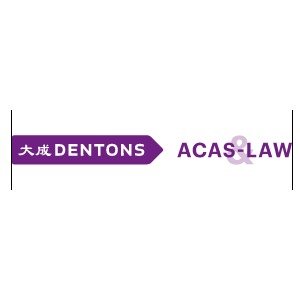Best Employment Rights Lawyers in Port Harcourt
Share your needs with us, get contacted by law firms.
Free. Takes 2 min.
List of the best lawyers in Port Harcourt, Nigeria
Nigeria Employment Rights Legal Questions answered by Lawyers
Browse our 2 legal questions about Employment Rights in Nigeria and read the lawyer answers, or ask your own questions for free.
- Employee Benefits not given 3 months after resignation
- The employee resigned and benefits had not been paid by the company after three months.
-
Lawyer answer by A.O AYENI & ASSOCIATES
This is actionable and can be enforced in court if the company refuses to pay even after writing a letter to them.
Read full answer - Next steps after suspension
- What can I do if my employer refused to call me back after serving suspension
-
Lawyer answer by Cabinet de Consultance et d'expertise juridique
Vous pouvez saisir l'organe en charge des litiges entre employeurs et employés.
Read full answer
Nigeria Employment Rights Legal Articles
Browse our 1 legal article about Employment Rights in Nigeria written by expert lawyers.
- Are Unwritten Employment Contracts Legally Valid and Enforceable in Nigeria?
- A contract of employment can exist whether orally or in writing. It can arise out of any discussion, obligation or instruction to do an act as far as the elements of a contract are present. Agreements are made to be honoured. An unwritten contract is enforceable provided it complies with... Read more →
About Employment Rights Law in Port Harport, Nigeria:
The Employment Rights Law in Port Harcourt, Nigeria, is designed to protect the rights of employees and outline the obligations of employers. These laws cover a wide range of topics including unfair terminations, discrimination, harassment, workplace safety, and wage standards. They are guided by the country's federal laws as well as the local laws specific to Rivers State where Port Harcourt is located.
Why You May Need a Lawyer:
You may need a lawyer for several reasons related to Employment Rights. If you feel like you have been unjustly treated, discriminated against, wrongly dismissed or not properly compensated at your place of work, a lawyer can help you understand your rights, identify possible legal solutions, and represent you in any potential legal proceedings. Lawyers are also helpful in deciphering complex legal language in employment contracts and ensuring any agreements you enter are in your best interest and conform with the law.
Local Laws Overview:
Rivers State has relevant labour and employment laws, designed to ensure the fair and equitable treatment of employees. The key aspects include the Labour Act, which sets the minimum standards for employment conditions, including wages and benefits, the Trade Unions Act, which addresses the rights and limitations of trade unions, and the Employees' Compensation Act designed to compensate employees for occupational diseases or accidents. Anti-discrimination and sexual harassment policies are also widely enforced to promote a safe and comfortable working environment.
Frequently Asked Questions:
What can I do if I'm being discriminated against at work?
Discrimination at work is illegal. If you think you’re being discriminated against, you should seek legal advice from a lawyer specializing in labor law. They could help you report the issue to the appropriate government bodies and potentially file a lawsuit.
What are the grounds for unfair dismissal?
Nigerian employment laws protect employees from unfair dismissal. Grounds for unfair dismissal include termination based on gender, religion, ethnicity or political opinion; termination based on union activities, and termination without adequate cause or notice.
What is the occasion for an employment contract?
An employment contract is necessary while taking up a job. The contract should specify key details of the employment, including job description, pay rate, working hours, conditions for termination, and more. It is not a requirement by law but it helps define expectations of both parties clearly.
Do employers have to pay overtime?
Yes. According to the Labour Act, every employee who works overseen hours is entitled to an overtime rate of pay. The terms should be clearly outlined in an employment contract.
Can I join a trade union?
Yes. Employees in Nigeria encapsulated under relevant labour laws have the right to join trade unions and engage in collective bargaining with their employers. This can enhance your ability to negotiate better working conditions.
Additional Resources:
The Nigeria Social Insurance Trust Fund (NSITF), the Nigeria Labour Congress (NLC), and the Federal Ministry of Labour and Employment are great resources for information on employment rights and laws in Nigeria. These organizations can provide legal aid and advice where needed.
Next Steps:
If you think your rights as an employee are being violated, you should consult an Employment Rights Lawyer in Port Harcourt. They will help you understand your legal options, advise you on the potential for a case, and could represent you in court, if necessary. It also essential to document any instances of violation of your employment rights to support potential legal proceedings.
Lawzana helps you find the best lawyers and law firms in Port Harcourt through a curated and pre-screened list of qualified legal professionals. Our platform offers rankings and detailed profiles of attorneys and law firms, allowing you to compare based on practice areas, including Employment Rights, experience, and client feedback.
Each profile includes a description of the firm's areas of practice, client reviews, team members and partners, year of establishment, spoken languages, office locations, contact information, social media presence, and any published articles or resources. Most firms on our platform speak English and are experienced in both local and international legal matters.
Get a quote from top-rated law firms in Port Harcourt, Nigeria — quickly, securely, and without unnecessary hassle.
Disclaimer:
The information provided on this page is for general informational purposes only and does not constitute legal advice. While we strive to ensure the accuracy and relevance of the content, legal information may change over time, and interpretations of the law can vary. You should always consult with a qualified legal professional for advice specific to your situation.
We disclaim all liability for actions taken or not taken based on the content of this page. If you believe any information is incorrect or outdated, please contact us, and we will review and update it where appropriate.

















